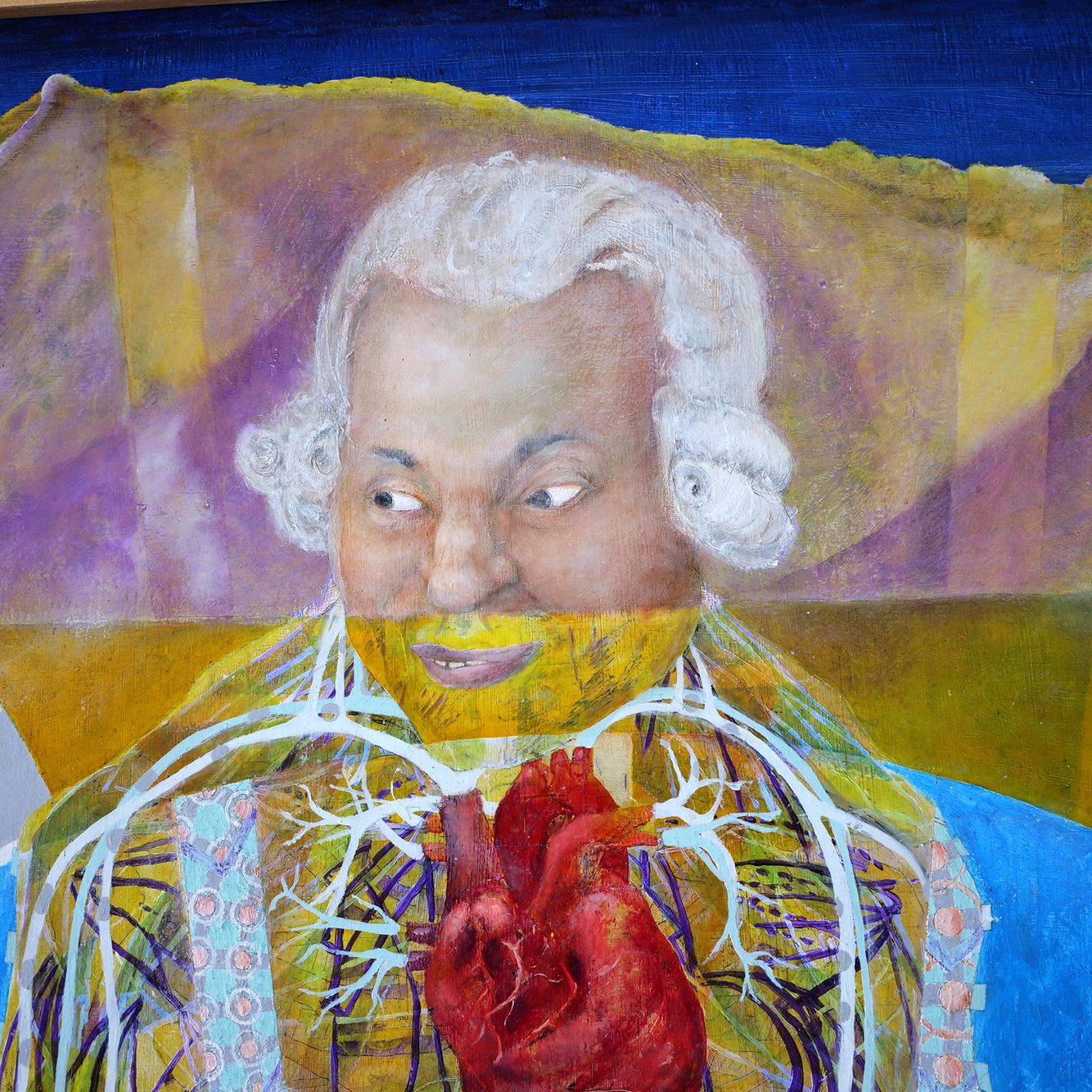The Next Supper


Detail

Detail of The Next Supper

Andrew Carnegie
Pro: Carnegie’s unmatched contributions to public libraries solidified his role as the leading force behind their expansion during the Gilded Age and Progressive Era. Con: However, his prioritization of profits over labor rights, including exploiting workers, undermined trust in wealthy industrialists and the broader capitalist system.

Henry Ford
Pro: Ford’s $5 workday improved workers’ living standards, set a precedent for fair wages, and laid the foundation for the middle class we see today. His innovations spurred related industries, created thousands of jobs, and made consumer goods affordable, shaping the modern economy. Con: Ford segregated African American workers into low-paying jobs and published anti-Semitic propaganda, tarnishing his legacy.

Adam Smith
Pro: Adam Smith’s ideas, like the division of labor and the "invisible hand," show that self-interest in free markets boosts efficiency. Good or bad, this philosophy remains influential today—if the pie keeps growing, everyone gets a slice, driving industrialization and business. Con: Although Smith acknowledged disparities, he didn’t delve deeply into the potential for unchecked capitalism to exacerbate wealth gaps and social inequality.

John D. Rockefeller
Pro: Rockefeller’s vertically integrated oil model, controlling every stage from extraction to distribution, shaped modern corporate practices. Later, he donated the equivalent of over $14 billion to education, science, and public health, with his foundation focusing on long-term global challenges like food security, health, and climate change. Con: Rockefeller’s unethical practices, like bribery of politicians and price-fixing, eliminated competition and gave him undue influence, while his oil empire contributed to pollution and resource depletion.

Living from Heart
Pro: Living authentically can help you discover your true purpose in life, leading to more intentional and meaningful actions. Con: Acting based on emotions and feelings can sometimes lead to impulsive decisions that may not be practical or well thought out.

Thomas Edison
• Pro: Edison's invention of the electric light bulb revolutionized daily life, enabling people to extend their activities beyond daylight hours and transforming work, leisure, and safety. • Con: Critics contend that Edison often took sole credit for inventions developed collaboratively, benefiting significantly from the creativity and efforts of his employees and collaborators

